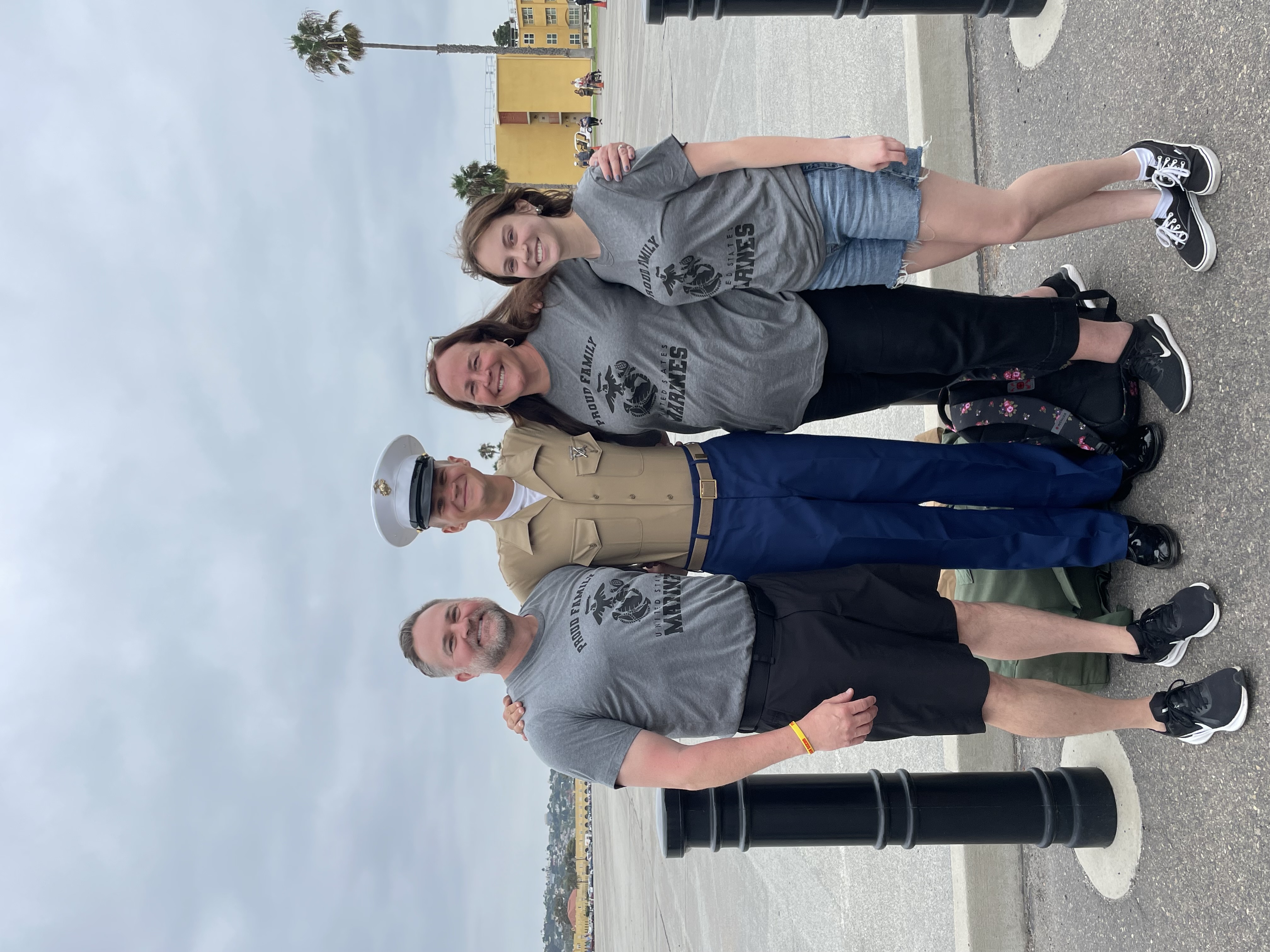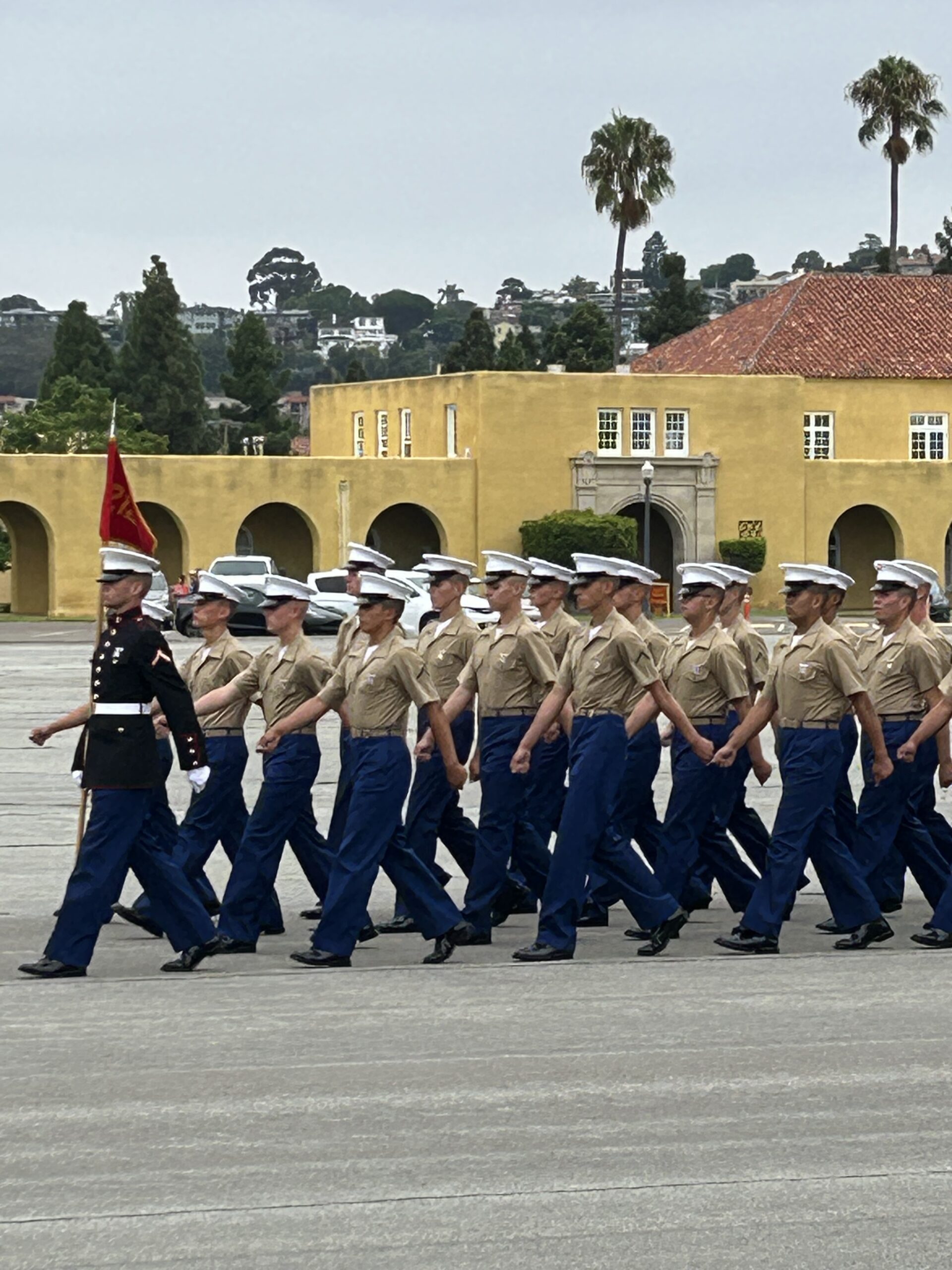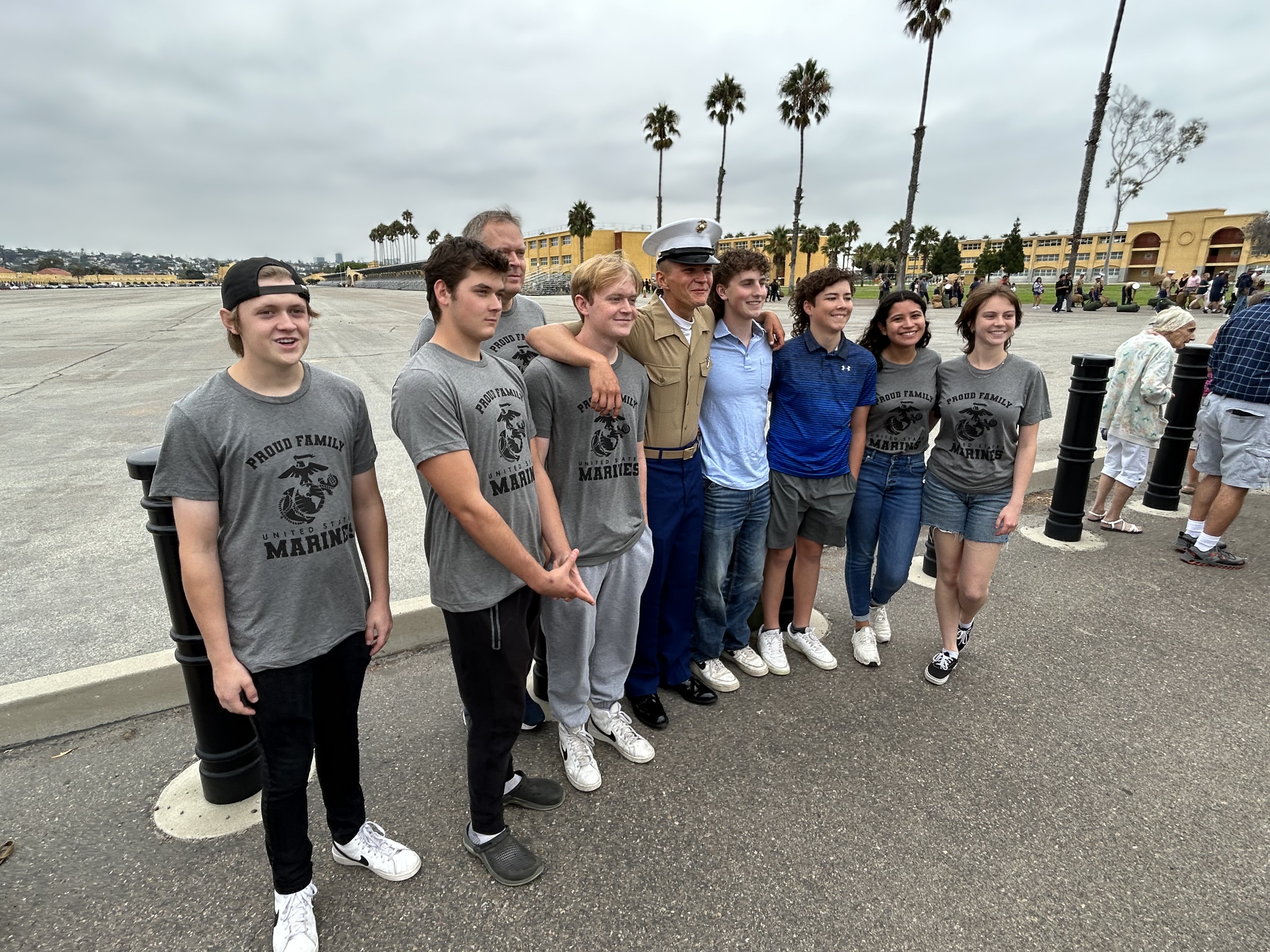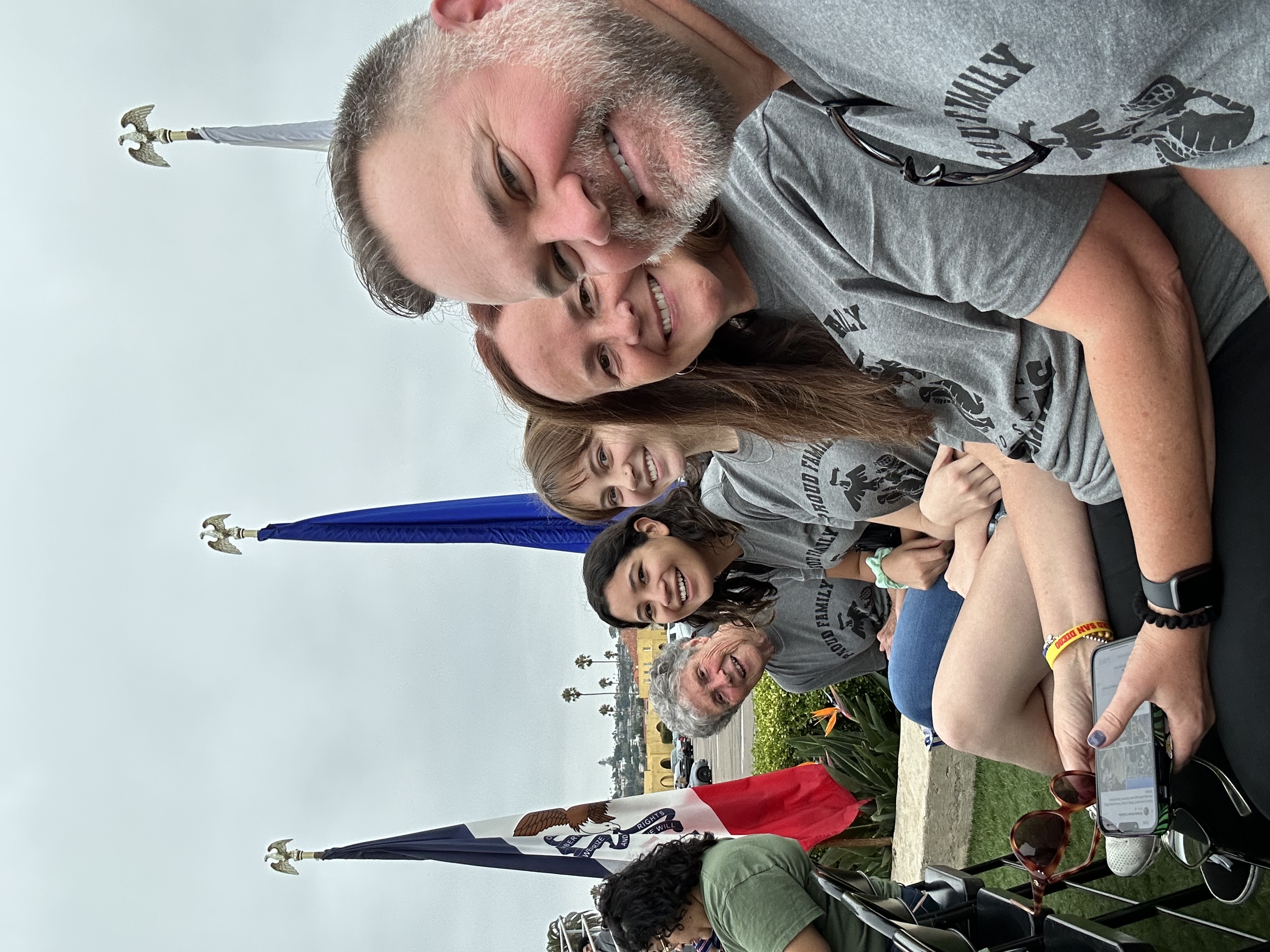On June 19 — just two weeks after his Bingham High School graduation — we sent our son to boot camp in San Diego to join the U.S. Marine Corps.
His decision to join the Marines opened new chapters for our family:
- We became a military family, which, until he met with the Marines recruiter, we’d never considered or planned for.
- We experienced a child leaving home quickly and abruptly, unlike our oldest, who took two years post-HS to move out.
- We became empty nesters.
When I left home in my late teens, it was for things like summer band and theater camps. And as a high schooler, I feared being drafted into the military.
And now my son — who left for boot camp one month before turning 18 — is head-first into the military, at least for eight years. It was an adjustment and a new reality I hadn’t prepared for.
Change can be unsettling.
Most people will never know what having a child at the U.S. Marine Corps boot camp is like. It’s not like boys, scouts, or summer camps. It’s more intense. The stakes are high. And what happens during boot camp changes your child’s life trajectory.
The most challenging part of the experience for parents is the lack of direct communication with your child. Most of our friends are familiar with ecclesiastical missions, where missionaries can message family members weekly and even stay connected through regular video calls and social media posts and comments.
Our son could only mail letters from boot camp through the U.S. Postal Service. And he got to call us once for about five minutes near the middle of his 13-week boot camp experience, and one more time, for about twice as long, the Sunday after his boot camp crucible.
Our communication was also through snail mail. There was about a two-week lag between when we’d write him, and he’d write us back. Asking questions and getting direct answers proved improbable. So, we learned to be good guessers.
Mostly, he was busy and didn’t have much time to write. So, the messages we received were short. He talked about how much he missed his family, certain foods, and the ability to do whatever he wanted whenever he wanted. He also talked about how difficult and challenging his physical and mental experience was. He was his platoon’s scribe, which meant he assisted the drill instructors and stayed up an hour or two longer than the other Marines.
Tip: Finding the correct address to mail letters to our son was difficult. We finally found the authoritative source for his boot camp mailing address on the Marine Corps Recruit Depot website.
Our family benefited from one communication tender mercy. Our son chose to spend a couple of hours on Sunday mornings in worship. Our church, The Church of Jesus Christ of Latter-day Saints, has a retired U.S. Air Force Reserve captain who volunteers as a service missionary for the Marine Corps recruits. He helps organize their Sunday worship services.
As a civilian volunteer, he can contact the recruit’s parents. Getting a phone call from him on the evening of the first Sunday after we’d sent our son to boot camp was reassuring. After that, each Sunday, my wife and he would exchange a few text messages. He’d share short updates so we had a general idea of how things were going for our son.
These texts seemed like a lifeline to our son. We’re so grateful to Elder Page for his service to our country as a retired USAFR captain and as a fellow latter-day saint.
It’s difficult to overstate how foreign it is, in 2023, to be so disconnected from your child. We’re used to nearly immediate methods of communication, and resorting to physical letters seems so last century.
We also joined a Facebook group led by family members of former recruits and U.S. Marines. It was a nonprofit group of volunteers. They shared the best information we received about what was going on at boot camp. The group was supportive and helpful throughout the experience.
Reading posts and comments and engaging with the other recruits’ family members was helpful and cathartic.
The other challenging and different part of Marine Corps boot camp — compared to other more common camp experiences — was knowing the extreme physical challenges our son would need to complete. A 13-week schedule, called the matrix, outlines the various physical and mental challenges and tests the recruits face.
Boot camp culminates in the crucible, which is a 54-hour test of endurance under extreme conditions. Just before my son’s platoon began their crucible, they experienced a hurricane and an earthquake in Southern California. In the Facebook group, many family members were concerned about the recruits’ safety during the crucible. But they were safe and accounted for, even though what they were doing was physically challenging and exhausting.
The mantra we’ve learned is, “No news is good news.” As a parent of a recruit, you hold on to that saying every time you think of your kid doing something more difficult, challenging, and stressful than they’ve ever done.
When we knew the crucible had concluded, we knew our son ceremoniously received his eagle, globe, and anchor pin and officially became a Marine. Not because we got a phone call to confirm that he had completed the crucible. But because we didn’t hear anything to the contrary. Again, “No news is good news.”
Although our son is a new 18-year-old, joining the Marines has made him grow up in ways that most of his peers and even 20-somethings don’t experience today. His maturity and perspective on life have dramatically changed. And with his commitment, he has changed the trajectory of his life and ours.
A remnant of the Vietnam War seems to be the relegation of U.S. armed forces to America’s lower class. I’ve read and seen examples of military service being looked down on by Americans of influence and wealth. This feels very un-American to me. To the extent this feeling exists, it’s unfortunate, if not despicable.
There’s great wisdom in sending young adults off after high school graduation to serve in some capacity. It teaches many important, hard lessons best learned through life experience, not book learning.
Thankfully, at my son’s high school graduation, some of the loudest, longest applause came when the principal highlighted the six members of our son’s 600+ graduating class who were entering America’s armed forces. Our son was the only one going into the Marines.
As a Marine family, we’re now connected to reports of accidents or war. Our hearts ache with every service member’s loved ones when one of our own is injured or loses their life.
We’ll always live knowing that a ring on our doorbell could break our hearts and change our lives forever.
I get choked up and teary when I think of the path our son has chosen and our boy’s service and commitment. It’s a mixture of feeling like a proud papa and anxiety about what could happen during and with the residual effects of his military service.
Every parent may feel this to a degree when their children leave home. Despite my years of longing for less teenager stress when our kids were that age, being an empty nester — like every new life chapter — comes with a degree of uncertainty. It feels a bit unsettling and surreal.
One thought has been on repeat in my mind since sending our son off for his boot camp experience: The family is an earthly experience with the most significant opportunity to become like our Heavenly Parents.
I imagine our Father and Mother in Heaven feeling similarly anxious when their spirit children left to experience mortality. The earth-life choices we all make determine our trajectory after this life.
Change is unsettling, especially if there’s no sure foundation.
Another surprising observation from our experience connecting with other recruit and Marine families is how much love of God and Jesus Christ is shared. There are constant prayers and calls for blessings and protection. So many parents have typed and posted prayers on behalf of the recruits. It has been awesome to feel that unity, brotherhood, and sisterhood.
Regardless of what the future holds for our son or family, my foundation is fixed upon the rock of our Redeemer, who is mighty to save. He’s better at saving than I expect to ever be at anything. In fact, he’s a perfect Savior, and His grace is sufficient.
May God, our Lord Jesus Christ, and the Holy Spirit be with, strengthen, and protect our son as he serves this country and give us, his family, an eternal perspective and strength to endure. Amen.








No comments yet.